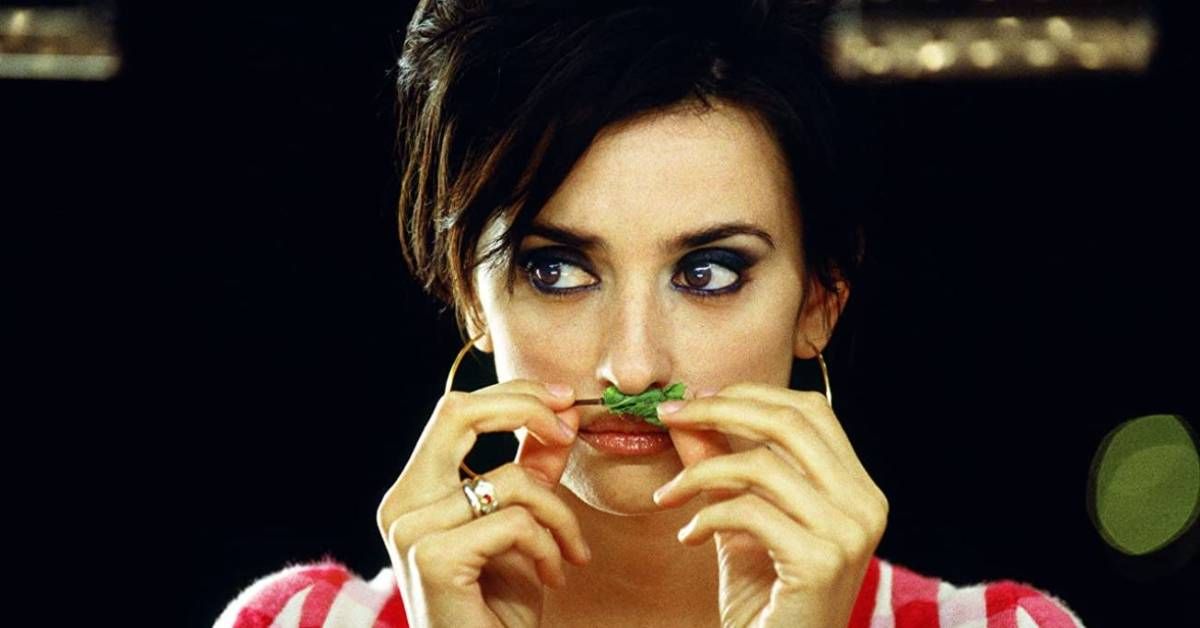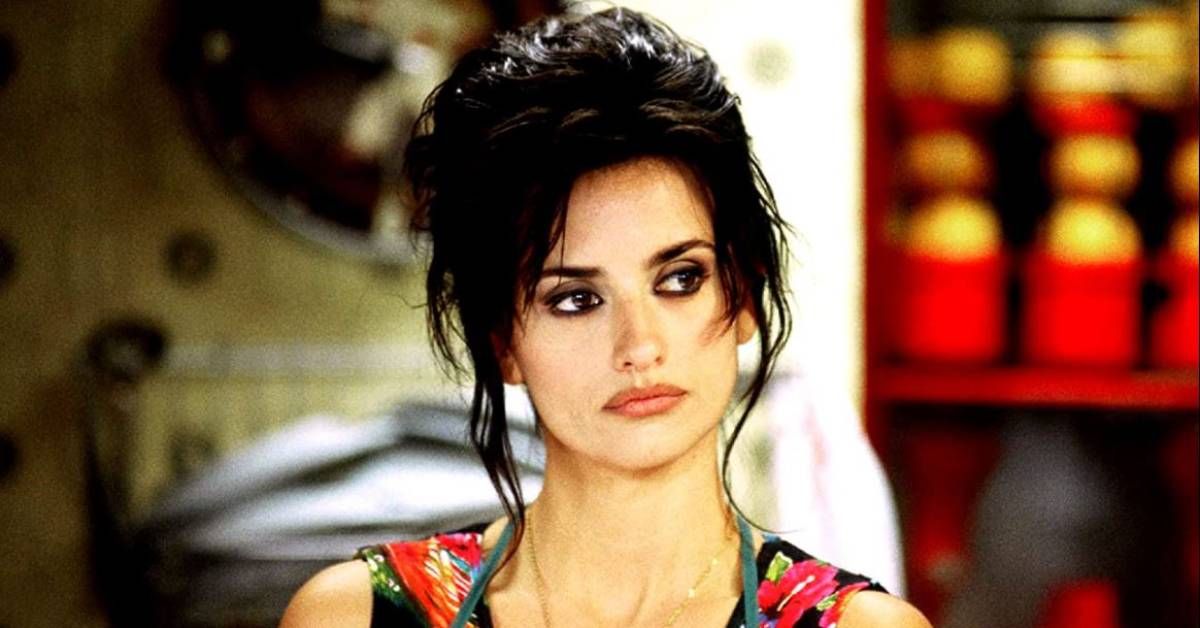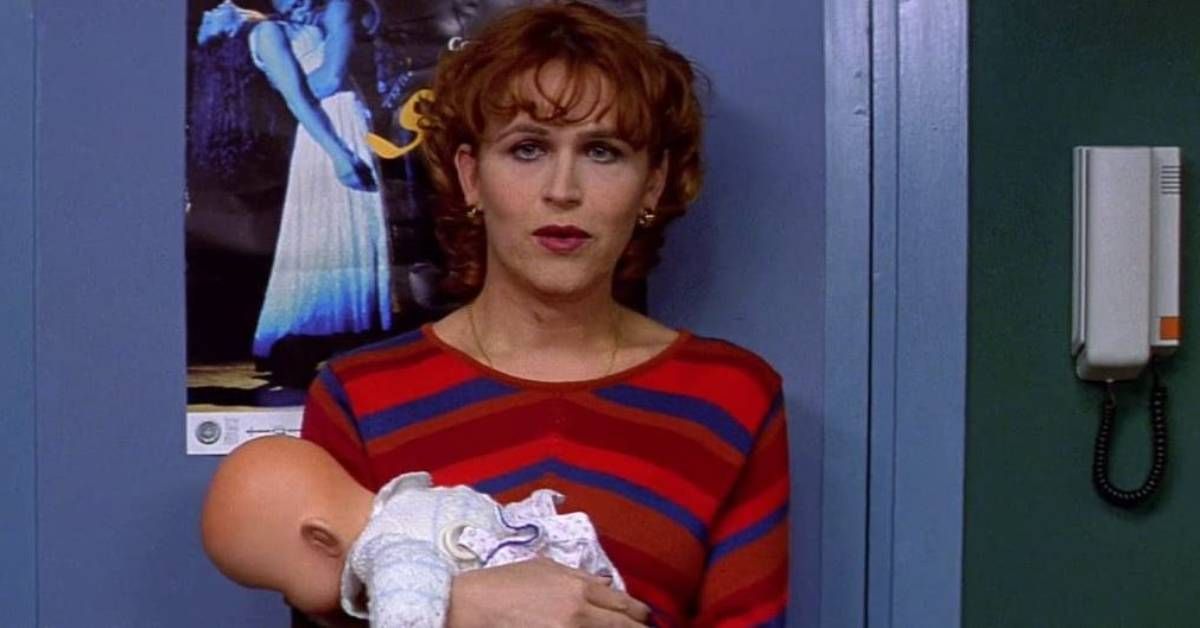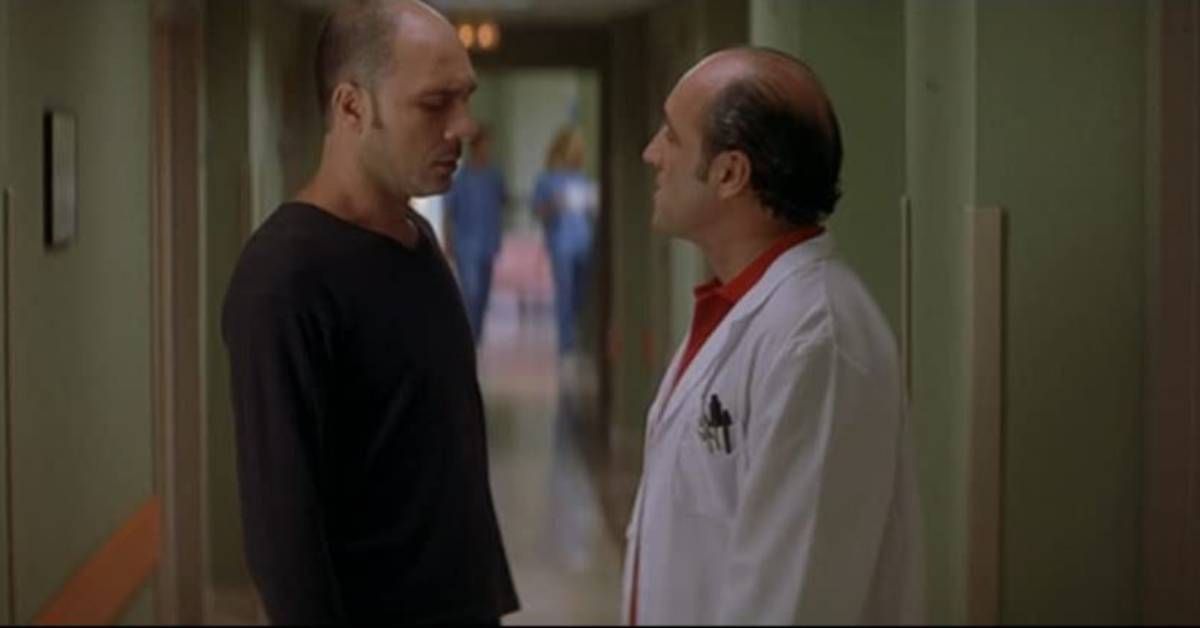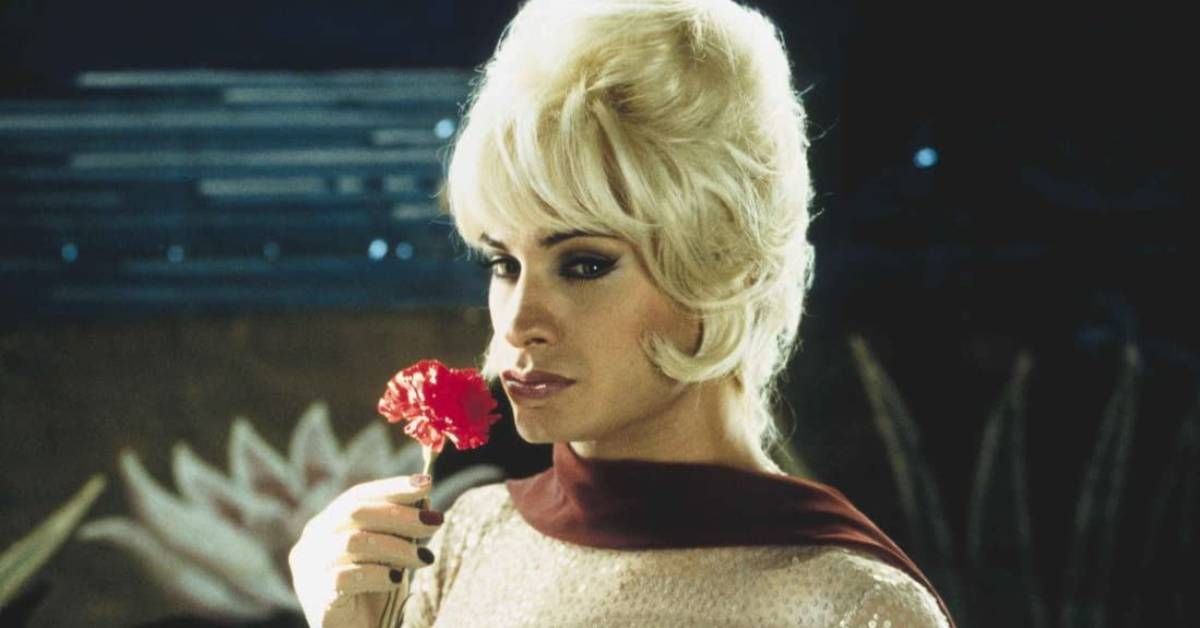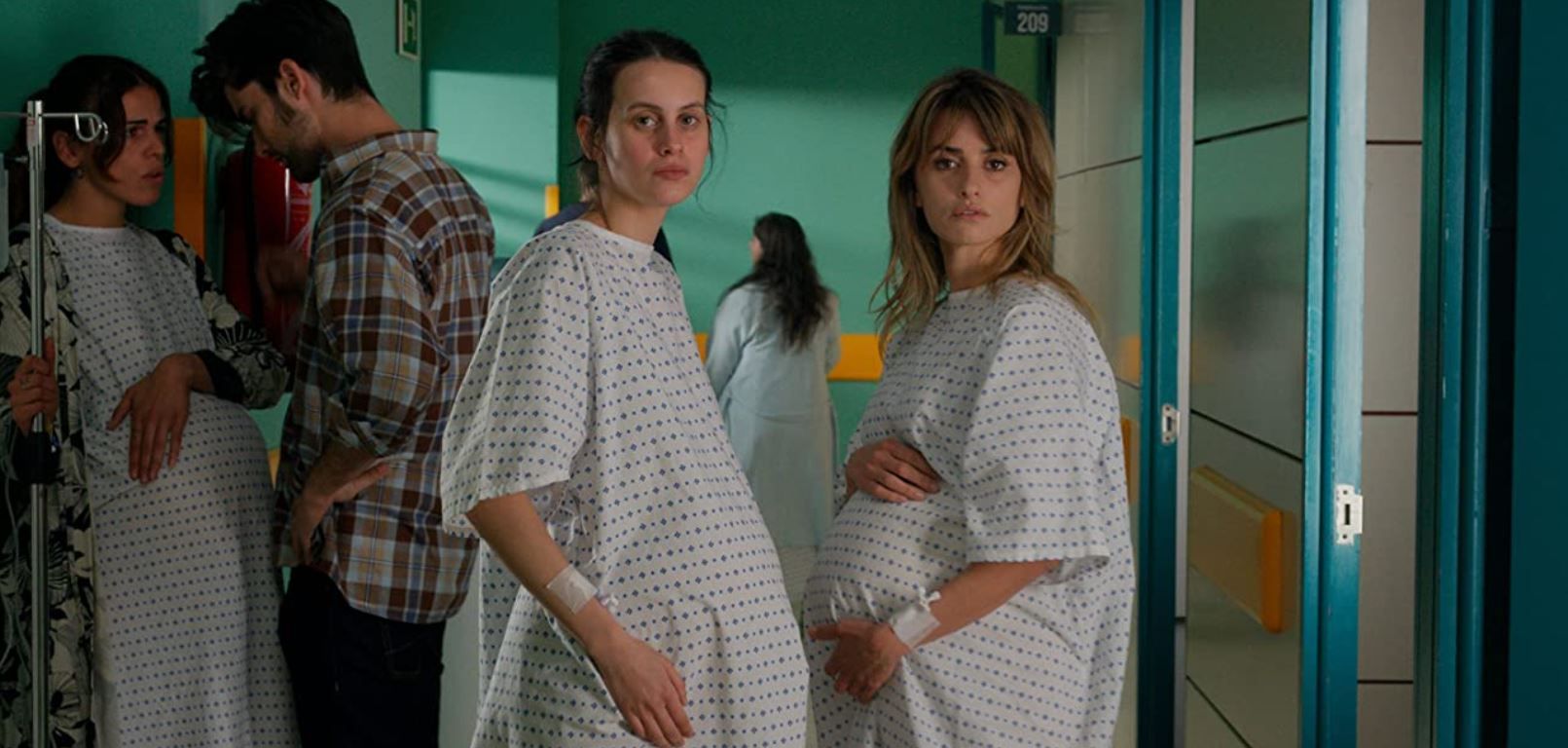A good way for newcomers to Pedro Almodóvar's filmography to get a quick taste of his unique, visionary style is to check out his English-language short film The Human Voice starring Tilda Swinton. It was filmed during the COVID-19 pandemic and benefits from multiple viewings to fully appreciate the acting, writing and directing. Almodóvar's Spanish features, however, are necessary to fully recognize the Oscar winner's talent. He also has a vast exhibition on display at Hollywood's Academy Museum.
Almodóvar is also a former actor, but his work behind the camera over the years has been impactful and groundbreaking. His films are marked by melodrama, irreverent humor, bold color, glossy décor, quotations from popular culture and complex narratives. Desire, passion, family and identity are among his most prevalent subjects in his films. He is known for his collaborations with Antonio Banderas and Penélope Cruz, who have both ascended to international film stars thanks to these numerous joint efforts. Almodóvar came to prominence as a director and screenwriter during the cultural renaissance that followed after the end of Francoist Spain.
One of the most internationally successful Spanish filmmakers, Almodóvar and his films have gained worldwide interest and developed a cult following. He has won two Academy Awards, and in January 2017 he was named as President of the Jury for the 2017 Cannes Film Festival. In 2019, he was awarded the Honorary Golden Lion at the 76th Venice International Film Festival. It was recently revealed that Cate Blanchett will star in Almodóvar's first English-language feature. As we await its release amid the awards buzz that Parallel Mothers is attracting, let's look back at Almodóvar's finest films to date, narrowed down to the top five.
5 Volver (2006)
After her "death," a mother returns to her hometown in order to fix the situations she couldn't resolve during her life. Volver is just one of the many unique Cruz-Almodóvar collaborations that's not to be missed. "I love the fear that I felt on the set of this movie, the terror of knowing the responsibility I had and how it was going to be a challenge every minute of every day," Cruz told MovieWeb back in 2006. "Pedro said he needed somebody that could have a little bit of those opposites in her. He chose me because he knows I can be very strong for some things and very vulnerable for others. He knows I cry a lot, and that I also can be extremely strong if I need to be. He knows me very well, and he knew that I was going to understand every side of Raimunda."
Revolving around an eccentric family of women from a wind-swept region south of Madrid, Cruz stars as Raimunda, a working-class woman forced to go to great lengths to protect her 14-year-old daughter Paula. To top off the family crisis, her mother Irene returns from the dead to tie up loose ends. Volver premiered at the 2006 Cannes Film Festival, where it competed for the Palme d'Or. It received critical acclaim and ultimately won two awards at the festival, for Best Actress and Best Screenplay for Almodóvar.
4 All About My Mother (1999)
Another Cruz-Almodóvar collaboration, All About My Mother starts on a young man named Esteban who wants to become a writer—and also discovers the identity of his second mother, a trans woman carefully concealed by his mother Manuela. From there, the story has many twists and turns that we shouldn't spoil here, for those who haven't seen this layered story on screen. It's full of awards-caliber performances, from Cecilia Roth playing Esteban's loving mom Manuela to Cruz later appearing as Sister Rosa, who befriends Manuela along her journey as the film's true protagonist. There's also Antonia San Juan as a scene-stealing sex worker named Agrado, who enters Manuela's life through a chance occurrence. And finally, Marisa Paredes plays an iconic actress, who is adored by young Esteban and also enters Manuela's journey by chance.
It will all make sense in the end, which is why All About My Mother made our top five list here. You'll laugh, cry and cheer for the heroes on screen, as the film deals with complex issues such as AIDs, queerness, faith and existentialism. The film effectively blurs divisions between birth and adoptive parenthood, cis and transgender identity. No surprise that it scooped up the Oscar and Golden Globe that year for Best Foreign Language Film, along with numerous other honors.
3 Talk to Her (2002)
After a chance encounter at a theater, two men, Benigno and Marco, meet at a private clinic where Benigno works. Lydia, Marco's girlfriend and a bullfighter by profession, has been gored and is in a coma. It so happens that Benigno is looking after another woman in a coma, Alicia, a young ballet student. The lives of the four characters will flow in all directions, past, present and future, dragging all of them towards an unsuspected destiny.
Talk to Her was a critical and commercial success, winning the Golden Globe for Best Foreign Language Film, while Almodóvar won the Academy Award for Best Original Screenplay. It's now generally regarded as one of the best films of the 2000s.
"I had the intention of not only doing something different than what I’ve done before, but also to make something different from the reality that inspired it," Almodóvar told IndieWire upon the film's release. "If you think about the story, it’s a story that deals with hospitals and women in comas, a subject that can be really creepy, but I wanted to deal with it in a completely different way. I wanted it to be a love story that had a completely opposite tone from the subject matter you would expect to have to deal with. I didn’t want to deal with pain, and I didn’t want to portray the hospital as a place where pain reigns."
2 Bad Education (2004)
Not to be confused with HBO's 2019 hit film, Almodóvar's Bad Education is an examination on the effect of Franco-era religious schooling and sexual abuse on the lives of two longtime friends. In the early 60s, two boys discover love, movies and fear in a Christian school. The school priest, who is also the principal and a literature teacher, witnesses their discoveries, and the three characters come against one another twice again, in the late 70s and in 1980. These meetings are set to change the life and death of some of them.
Along with metafiction, sexual abuse by Catholic priests, gender fluidity and drug use are also important themes and devices in the plot. The film received a hard NC-17 rating in the U.S. for depiction of gay sex. Meanwhile, it received critical acclaim and was seen as a return to Almodóvar's dark stage.
1 Parallel Mothers (2021)
Parallel Mothers is in theaters now, this latest Almodóvar-Cruz collaboration centering on two mothers who give birth the same day. They coincide in a hospital room, finding similarities in that they're both single and became pregnant by accident. One is middle-aged and without regret (played by Cruz), while the other, an adolescent, is scared and traumatized (played by Milena Smit). The two women form a strong bond with one another as they both confront motherhood. At its opening night world premiere, the movie received a nine-minute standing ovation from Venice Film Festival attendees in the Sala Grande. Rightfully so, as it's arguably Almodóvar's finest work to date and deserves this top spot on our list.

